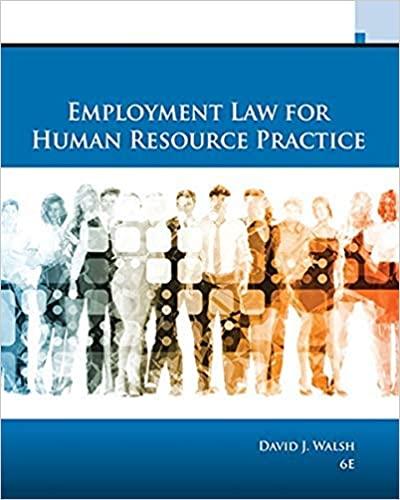Plaintiff Keith was born deaf. He wears an external sound transmitter, and can detect noises through his
Question:
Plaintiff Keith was born deaf. He wears an external sound transmitter, and can detect noises through his cochlear implant, such as alarms, whistles, and people calling for him. Although he is unable to speak verbally, he communicates using American Sign Language (ALS). Keith successfully completed two lifeguard training courses with the aid of a sign language interpreter, and was certified as a lifeguard. He applied at Oakland County, and was offered a position as a lifeguard at the wave pool, subject to a physical examination. The doctor who examined him, upon reading his medical file, said, “He’s deaf. He can’t be a lifeguard.” before making any other inquiry or examination. Water safety experts were consulted who also said that Keith was not qualified, and the job offer was withdrawn. Keith filed an action with the EOC, alleging a violation of the ADA.
1. What are the legal issues in this case? What did the appeals court decide?
2. Does it appear that the type of “individualized inquiry” required by the ADA occurred in this case? Why or why not?
3. Was the plaintiff “otherwise qualified” for this lifeguard position? Why or why not?
4. What accommodations was the plaintiff requesting? Are they reasonable? Why or why not? Would they likely impose an undue hardship? Why or why not?
5. What did the county do well in this case? What things should it have done differently?
Step by Step Answer:






